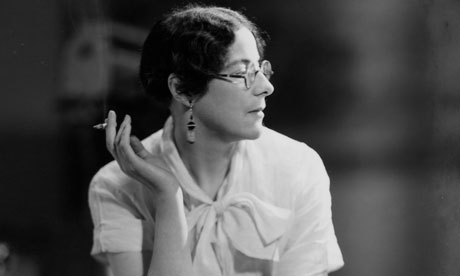by Eliot Weinberger & Octavio Paz
It was my wife, Annie, who introduced me to Eliot Weinberger through
his superb collection of essays, Works on
Paper—short, astute reflections on subjects ranging from India to Mateo
Ricci to The Bomb. It was also my
wife who introduced me to the non-fiction of Octavio Paz, most notably his collection
of essays, The Labyrinth of Solitude (with
its brilliant disquisition on the extraordinarily versatile Spanish verb chingar) and his Convergences: Essay on Art and Literature. It was therefore only natural that she,
Annie, was the one to introduce me to a book that combined the strengths of
both these men—as writers, translators, and critics—a work called 19 Ways of Looking at Wang Wei that
focuses on the translation history of a single Chinese
poem.
The poem ‘Lu zhai’ or ‘Deer Park’ by the wealthy Tang Dynasty Buddhist
painter, calligrapher, and poet Wang Wei is one of the world’s most famous
quatrains, taken from a series of twenty poems inspired by various sites along
the Wang River in the Shanxi province of northeastern China. The poem, written
as part of a massive horizontal landscape scroll (a genre Wei himself invented),
and some 1200 years old, is now one of the most widely translated poems from
the Chinese classical tradition.
It is generally believed that the title ‘Lu zhai’ is an allusion to the
Deer Park in Sarnath, the site of the famous Bodhi Tree beneath which the
Gautama Buddha preached his first sermon.
Everyone knows Wallace Steven’s poem “Thirteen Way of Looking at a
Blackbird”. Now consider 19 Ways of Looking at Wang Wei, an
attractively slim volume in which essayist and translator Eliot Weinberger and Mexican
Nobel Laureate poet and essayist Octavio Paz have selected and critiqued a
sampling—in English, Spanish, and French—of some of the most outstanding translations
of this subtle, sophisticated, notoriously difficult poem. As Weinberger remarks in his short
introduction to the collection to emphasize the scale of this challenge, “Chinese
prosody is largely concerned with the number of characters per line and the
arrangement of tones—both of which are untranslatable.” Paz as well, in
reflecting upon his own struggles to render the poem, notes: “The translation
of this poem is particularly difficult, for the poem carries to an extreme the
characteristics of Chinese poetry: universality, impersonality, absence of
time, absence of subject.”
Starting with W. J. B. Fletcher’s 1919 ‘The Form of the Deer’ and
ending with Gary Snyder’s untitled version from 1978, this collection is
extraordinary, not only for its focus on the translation of a single poem over
time, with all the changes in poetic sensibility that that entails, but for
Weinberger’s and Paz’s engaging, often Talmudic remarks regarding the subtleties
of Chinese poetry, the strengths and weaknesses of the various renditions, and
the art of translation in general, an art the particulars of which are certain
to interest any student of language. While praising all of the translations by
including them in the collection, the editors criticize some as attempts to
“improve” upon the original, others as “poetic”(meaning Westernized, ironic), at
least one as inaccurate, and still another as a typical example of Chinoiserie. For Weinberger there are two types of translators at work in
this collection: those who are scholars and read Chinese and those who are
poets and don’t. To his mind, each
type has its strengths—the scholars their grasp of classical Chinese, the poets
their mastery of English prosody and verse. It is this combination that really gives life to these
different, if consistently
illuminating renditions.
 Surely one of the most engaging features of the book are the editors’ largely
incidental reflections on the art of translation itself. To Weinberger translation is nothing
less than a spiritual exercise, and as such “…dependent on the dissolution of
the translator’s ego: an absolute humility toward the text...” A good translator is but a conduit, a medium, through which the poem can speak. Of the essence of a poem, that part which survives translation, he insists, "The living matter functions somewhat like DNA, spinning out
individual translations which are relatives, not clones, of the original. The
relationship between original and translation is parent-child. And there are,
inescapably, some translations that are overly attached to their originals, and
others that are constantly rebelling.”
This is exactly what makes this collection of translations—and the
editors’ tussle with them—such a pleasure to read.
Surely one of the most engaging features of the book are the editors’ largely
incidental reflections on the art of translation itself. To Weinberger translation is nothing
less than a spiritual exercise, and as such “…dependent on the dissolution of
the translator’s ego: an absolute humility toward the text...” A good translator is but a conduit, a medium, through which the poem can speak. Of the essence of a poem, that part which survives translation, he insists, "The living matter functions somewhat like DNA, spinning out
individual translations which are relatives, not clones, of the original. The
relationship between original and translation is parent-child. And there are,
inescapably, some translations that are overly attached to their originals, and
others that are constantly rebelling.”
This is exactly what makes this collection of translations—and the
editors’ tussle with them—such a pleasure to read.
Here is a brief sampling:
The Form of the Deer
So lone seem the hills; there is no one in sight
there.
But whence is the echo of voices I hear?
The rays of the sunset pierce slanting the forest,
And
in their reflection green mosses appear.
- W.J.B. Fletcher, 1919
La Forêt
Dans la montagne tout est solitaire,
On
entend de bien loin l'écho des voix humaines,
Le
soleil qui pénètre au fond de la forêt
Reflete
son éclat sur la mousee vert.
-G. Margoulies, 1948
Through the deep woods, the slanting sunlight
Casts motley patterns on the jade-green mosses.
No glimpse of man in this lonely mountain,
Yet faint voices drift on the air.
-Chang Yin-nan & Lewis C. Walmsley, 1958
Deep in the Mountain Wilderness
Deep in the mountain wilderness
where nobody ever comes
Only once in a great while
Something like the sound of a far off voice.
The low rays of the sun
Slip through the dark forest,
And gleam again on the shadowy moss.
-Kenneth Rexroth, 1970
En la Ermita del Parque de los Venados
No se ve gente en este
monte.
Sólo se
oyen, lejos, voces.
Por hos
ramajes lasluz rompe.
Tendida
entre las yerba brilla verde.
-Octavio Paz, 1974
Empty mountains:
no
one to be seen.
Yet—hear—
human
sounds and echoes.
Returning sunlight
enters
the dark woods;
Again shining
on
the green moss, above.
-Gary Snyder, 1978
Eliot Weinberger was born in New York City in 1949. He is the primary translator of Octavio Paz into English.
His anthology American Poetry Since 1950: Innovators and Outsiders
(1993) was a bestseller in Mexico, and his edition of Jorge Luis Borges's Selected
Non-Fictions (1999) received the National Book Critics Circle prize for
criticism. In 1992, he was given PEN's first Gregory Kolovakos Award for his
work in promoting Hispanic literature in the United States, and in 2000 he was
the first American literary writer to be awarded the Order of the Aztec Eagle
by the government of Mexico.
Eliot Weinberger's publications include the collection of essays Karmic Traces: 1993-1999 and a translation of Bei Dao's Unlock (with Iona Man-Cheong), both published by New Directions in 2000. He is the editor of The New Directions Anthology of Classical Chinese Poetry (2003).*
Octavio Paz. Poet, essayist. Born on March 31, 1914, in Mexico City, Mexico. Paz
was exposed to literature at an early age thanks to his grandfather's
library. The son and grandson of political journalists, he followed the
family tradition and became a writer, publishing his first volume of
poetry, Luna silvestre, in 1933. Paz was also a skilled editor and helped found a literary magazine called Taller
in 1938. He entered the diplomatic service in 1945 and was later
appointed the Mexican ambassador to India, a position he held from 1962
to 1968. Paz resigned in protest over the Mexican government's handling
of student demonstrations during the Olympic Games.
Adept at both poetry and prose, Paz moved back and forth between the two genres throughout his career. Poetry, such as Piedra de sol (1957), and critical and analytical works, such as El Laberinto de la soledad (1950) cemented his reputation as a master of language and a keen intellect. He produced more than 30 books and poetry collections in his lifetime. Paz received numerous awards for his work, including the Nobel Prize for Literature in 1990. He died on April 19, 1998, in Mexico City, Mexico.
* Bio.com
19 Ways of Looking at Wang Wei is published by Asphodel Press
Adept at both poetry and prose, Paz moved back and forth between the two genres throughout his career. Poetry, such as Piedra de sol (1957), and critical and analytical works, such as El Laberinto de la soledad (1950) cemented his reputation as a master of language and a keen intellect. He produced more than 30 books and poetry collections in his lifetime. Paz received numerous awards for his work, including the Nobel Prize for Literature in 1990. He died on April 19, 1998, in Mexico City, Mexico.
* Bio.com
19 Ways of Looking at Wang Wei is published by Asphodel Press
Peter Adam Nash























